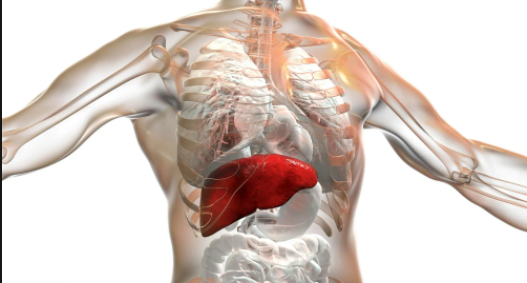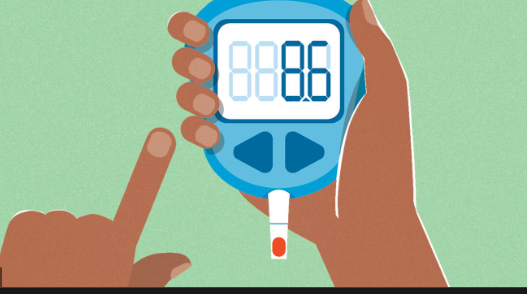14 Unique Benefits of Coffee
For millennia, coffee has been both lauded and derided. It’s been blamed for causing impotence and insanity and being a treatment for lethargy and a “gift from god.
” It’s a big deal. But, in today’s world, what are the genuine, scientifically proven benefits and drawbacks of coffee?
The most well-known element in coffee is caffeine, the world’s most widely ingested psychoactive drug.
Although the positive effects of coffee on the human body have been widely studied, coffee is a complicated beverage containing a thousand different chemicals.
Some studies claim that decaf and caffeinated coffee have similar health effects, implying that caffeine isn’t responsible for most coffee’s health advantages.
Coffee research and its benefits and drawbacks for humans is far from complete, but here is a summary of what we already know.
This article takes an in-depth look at 15 of the top evidence-based benefits of coffee.

1-May enhance athletic performance:

Athletes who want to improve their performance and energy levels frequently utilize coffee as an ergogenic aid (30).
A performance enhancer is another term for an ergogenic aid.
Compared to a control group, it was consuming coffee before exercise improved people’s endurance and decreased their perceived exertion,
according to a study of nine research (31Trusted Source).
Even after the researchers accounted for age, belly fat, and physical activity levels,
a study of 126 older persons revealed that consuming coffee was related to increased physical performance and faster gait speed (32Trusted Source).
In addition, a major study found that moderate coffee consumption could boost power output and time-trial completion time by a bit amount. However,
because the results were mixed, the researchers concluded that caffeine might affect various persons (33Trusted7 Source).
SUMMARY:
Coffee could improve physical performance and endurance when consumed before exercising. However, some studies have turned up mixed results.
2-Could increase longevity

According to some research, coffee’s plethora of possible health benefits could help people live longer.
For instance, a meta-analysis of 40 research found that drinking two to four cups of coffee per day was linked to a decreased risk of death,
regardless of age, weight, or alcohol usage (27Trusted Source).
Similarly, after 12 and 18 years of follow-up, another study of 1,567 participants revealed that drinking caffeinated coffee was connected to a decreased risk of death
. Additionally,drinking at least one cup of coffee each day was linked to a reduced risk of cancer death (28Trusted Source).
Coffee, it turns out, can dramatically lengthen the life span of yeast by protecting it from free radicals and DNA damage,
according to one test-tube study (29Trusted Source).
However, additional research is needed to see if this applies to humans.
SUMMARY:
Coffee could be associated with a lower risk of death, regardless of other factors, like age, weight status, or alcohol consumption. Still, more research is needed.
3-Coffee may help you lose weight:

Coffee includes magnesium and potassium, which assist the human body in using insulin, controlling blood sugar levels, and lowering your desire for sugary snacks and treats.
According to some research, coffee could alter fat storage and support gut health, which may be beneficial for weight management (13Trusted Source).
For example, one review of 12 studies concluded that higher coffee consumption could decrease body fat, especially in men (14Trusted Source).
In another study, increased coffee intake was linked to decreased body fat in women (15Trusted Source).
Furthermore, one study found that people who drank one to two cups of coffee per day were 17% more likely to meet recommended physical activity levels than those who drank less than one cup per day (16Trusted Source).
Higher levels of physical activity could help promote weight management (16Trusted Source).
SUMMARY
Coffee may aid in weight loss and has been related to reducing body fat. According to one study, people who drink coffee are also more inclined to be physically active.
4-Supports heart health

According to several studies, coffee consumption may be beneficial to heart health.
One study revealed that drinking three to five cups of coffee every day lowered the risk of heart disease by 15%. (23Trusted Source).
A meta-analysis of 21 research found that drinking three to four cups of coffee per day was linked to a 21% decreased risk of stroke (24Trusted Source).
Furthermore, a study including over 21,000 adults discovered that higher coffee consumption was linked to a lower risk of heart failure (25Trusted Source).
Caffeine, on the other hand, may influence blood pressure levels. As a result, those with uncontrolled blood pressure may need to cut back or moderate their coffee consumption (23Trusted Source, 26Trusted Sour5-ce).
Conclusion
to some studies, consuming coffee may reduce the risk of heart disease, stroke, and heart failure.
5-Could protect against liver conditions:

Interestingly, some research suggests that coffee may benefit liver health and disease prevention.
For example, one study found that persons with liver disease who drank more than two cups of coffee per day had decreased liver scarring and cancer (20Trusted Source).
According to other studies, the more coffee people consume, the lower their risk of dying from chronic liver disease. One cup of coffee per day was connected to a 15% reduction in risk,
whereas four cups per day were linked to a 71% reduction (21Trusted Source).
Another recent study discovered that coffee consumption was linked to reduced liver stiffness, metric doctors use to quantify fibrosis or the production of scar tissue in the liver (22Trusted Source).
SUMMARY
Coffee drinking may be associated with a lower risk of death from chronic liver disease and other illnesses such as liver scarring and cancer.
6-Linked to a lower risk of depression

In some studies, coffee consumption has been linked to a reduced risk of depression.
Each cup of coffee drunk per day was associated with an 8% lower risk of depression, according to a study of seven research (17Trusted Source).
Another study discovered that drinking at least four cups of coffee per day was linked to a lower risk of depression than drinking only one cup per day (18Trusted Source).
Furthermore, a study including over 200,000 participants found that consuming coffee was connected to a decreased chance of suicide death (19Trusted Source).
SUMMARY:
In several studies, coffee has been associated with a lower risk of depression and may even be linked to a lower chance of suicide death.
7-Could support brain health:

Although studies have yielded conflicting results, some evidence suggests drinking coffee may help protect against neurodegenerative illnesses such as Alzheimer’s and Parkinson’s.
People who ingested coffee regularly had a much lower chance of acquiring Parkinson’s disease, according to a study of 13 research. Caffeine use has also been shown to reduce the progression of Parkinson’s disease over time (9Trusted Source).
Another analysis of 11 observational studies, including over 29,000 people,
discovered that the more coffee people drank,
the lower their risk of Alzheimer’s disease (10Trusted Source).
Furthermore, multiple studies have shown that moderate coffee drinking is linked to a reduced risk of
dementia and cognitive decline (11Trusted Source, 12Trusted Source).
SUMMARY
According to some research, coffee consumption may help prevent against Alzheimer’s disease, Parkinson’s disease, and cognitive decline.
8-May be linked to a lower risk of type 2 diabetes

According to several studies, drinking coffee regularly may lower the chance of acquiring type 2 diabetes in the long run.
In fact, according to a study of 30 research, each cup of coffee drunk per day was associated with a 6% decreased chance of developing type 2 diabetes (6Trusted Source).
Coffee’s capacity to retain the function of the beta cells in your pancreas, which are responsible for creating insulin to regulate blood sugar levels, is thought to be why (7Trusted Source).
It’s also high in antioxidants and has the potential to impact insulin sensitivity, inflammation, and metabolism, all of which have a role in type 2 diabetes development (8Trusted Source).
SUMMARY
Regular coffee drinking may be connected to a lower long-term risk of acquiring type 2 diabetes.
9-Boosts energy levels:

According to several studies, drinking coffee regularly may lower the chance of acquiring type 2 diabetes in the long run.
In fact, according to a study of 30 research, each cup of coffee drunk per day was associated with a
6% decreased chance of developing type 2 diabetes (6Trusted Source).
Coffee’s capacity to retain the function of the beta cells in your pancreas,
which are responsible for creating insulin to regulate blood sugar levels,
is thought to be why (7Trusted Source).
It’s also high in antioxidants and has the potential to impact insulin sensitivity,
inflammation, and metabolism, all of which have a role in type 2 diabetes development (8Trusted Source).
SUMMARY:
Regular coffee consumption may be linked to a lower risk of developing type 2 diabetes over the long term.
10-Coffee helps you focus and stay alert:

Caffeine use of 1-6 cups per day helps you focus and boosts mental alertness.
11-Coffee reduces risk of cancers.

According to one study, coffee has been demonstrated to reduce the incidence.
of prostate cancer in males by 20% and endometrial cancer in women by 25%. The participants
in the study consumed four cups of coffee per day. Caffeine may also help prevent the most prevalent type of skin cancer, basal cell carcinoma.
12-Coffee reduces risk of Parkinson’s disease:

According to studies, drinking coffee regularly reduces the risk of Parkinson’s disease by 25%. There is evidence that coffee stimulates the portion of the brain that is impaired by Parkinson’s disease.
13- Coffee protects your body:

Coffee is high in antioxidants, which act as small fighters in your body, battling and protecting you from free radicals.
14-Coffee brightens your mood, helps fight depression and lowers risk of suicide.

Caffeine stimulates the central nervous system and boosts production of neurotransmitters like serotonin, dopamine, and noradrenaline, which elevate your mood. Two cups of coffee a day prevents risk of suicide by 50 %.
Advice at the end
In many persons,
light-to-moderate caffeine consumption appears to have significant health benefits.
On the other hand,
very high doses might induce unpleasant side effects that make daily life difficult and cause major health problems.
Although reactions differ from person to person, the repercussions of excessive ingestion show that more isn’t always better.
To reap the benefits of caffeine without the drawbacks,
evaluate your sleep, energy levels, and other elements that o may impact,
and lower your intake if necessary.
You can read some of our popular articles:
15 Best Hair Removal Soaps To Try Out Today


Pingback: The best pre-workout supplements and their side effects and benefits -